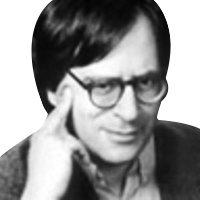As I was exiting the press screening of Happy End, which premiered today in competition at Cannes, a colleague termed the film a compilation of Michael Haneke’s “greatest hits.” True to form, this new film by the celebrated Austrian director (who won the festival’s top prize, the Palme d’Or, on two previous occasions) is the feel-bad art-house movie of the year. As with, say, Todd Solondz’s Happiness or Samuel Beckett’s Happy Days, a faux-cheerful title provides a massive clue that everything will not be OK and the very idea of happiness is more or less a con game. Revolving around, as is typical for Haneke, the antics of the complacent European bourgeoisie, Happy End is populated with characters succumbing to drug overdoses, suicide attempts—or merely the temptation to plunge into loveless marriages that are more like business arrangements.
These sordid events, among others, take place in Calais, the port city in northern France that housed an informal refugee camp, known colloquially as “The Jungle,” from 2015 to 2016. The contrast between impoverished refugees and the fabulously wealthy family who are at the center of Haneke’s film, which could be categorized as either black comedy or demented melodrama, is crucial to Happy End’s not-so-subtle agenda.
Once again, Haneke awards a plum role to Isabelle Huppert, who starred in his taboo-shattering The Piano Teacher and also had a supporting role in Amour, Haneke’s 2012 Palme d’Or winner. Huppert is Anne, the matriarch of the family who presides over the real estate business founded by her ailing father, Georges, (Jean-Louis Trintignant). Meanwhile, her brother Thomas (Mathieu Kassovitz) arrives in town with his new bride Anais while his first wife lies dying of a drug overdose in a hospital and Eve (Fantine Arduin), his sullen teenaged daughter from his first marriage, moves into the family mansion. Anne’s maladjusted son Pierre (Franz Rogowski), bungles his role in the family business and eventually comes up with a plan to sabotage his grandfather’s lavish birthday party.
ADVERTISEMENT
Despite Huppert’s predictably forceful performance, the film’s oldest and youngest characters—the elderly Georges who is most likely in the early stages of Alzheimer’s Disease and Eve, the troubled teen, emerge as the pivotal protagonists. Georges, superbly played by Trintignant, is beset by despondency and eager to have family members or acquaintances assist him in committing suicide—a link to Amour which featured Trintignant in the role of a man determined to end his ill wife’s physical infirmities by suffocating her. Eve, in turn, is also driven to attempt suicide and is unquestionably the family’s sardonic voice of reason.
As was true in earlier Haneke landmarks such as Benny’s Video and Caché, technology is indicted as a sinister force in Happy End. Eve’s realization that her father is conducting online erotic chats with a mysterious woman comes through her discovery of his Facebook page. And, throughout the film, iPhone videos are used to darkly comic effect.
It’s always been slightly difficult to know if Haneke is a genuine technophobe, or merely a scold who believes that our modern neuroses find apt expression in in an unhealthy preoccupation with disparate video and online devices. And, as is usually true in Haneke, the technology that supposedly liberates us actively promotes voyeurism and sadism.
Offending his audience in order to rouse them from their supposed timidity and conformism has always been implicit in Haneke’s sly didacticism. Still, it’s arguable that art house audiences are less likely to be roused from their stupor these days because they’ve become so accustomed to the rhythms of Haneke’s cinematic sermons. Attacking the bourgeoisie has become rather formulaic for this perennial visitor to Cannes. At this point, it might be more shocking for Haneke to, say, remake It’s a Wonderful Life than to engage in another assault on his viewers’ liberal pieties.
Nevertheless, Pierre’s determination to ruin his grandfather’s birthday celebration by inviting homeless refugees to the extravaganza could easily be praised as a salutary attempt to prick our consciences at a time when anti-immigrant rhetoric is at its height in both Europe and the States. In this respect, the film’s good intentions are on a par with Vanessa Redgrave’s humanistic plea in her documentary Sea Sorrow, which premiered several days ago out of competition at Cannes, to combat the racism exemplified by the Trump administration and the failed presidential campaign of Marine Le Pen.
But no filmmaker, certainly not Michael Haneke, should be honored because of mere good intentions. If truth be known, Haneke’s Code Unknown, released seventeen years ago in 2000, was a much more trenchant examination of European’s animosities towards dark-skinned immigrants. For better or worse, the main pleasure to be derived from Happy End involves Haneke’s aesthetic choices: the mixture of Christian Berger’s exquisitely lit cinematography and deliberately low-grade iPhone or surveillance footage, as well as the eccentric camera placements that have become a Haneke trademark. (For example, when Eve shows up at her mother’s hospital bedside, the reunion is shot from a distance that literalizes the unattainability of intimacy.)
In any event, oddsmakers and film buffs will be interested to learn if Haneke will continue his winning streak and once more take home the main prize (So far, it’s difficult to isolate an overwhelming favorite likely to win the hearts of the competition jury headed by Pedro Almodóvar) But, as the often acerbic critic Nick Pinkerton observed in The Village Voice while reviewing Amour in 2012: “ There are two things that are certain in life. One is that death will come for every one of us. The other is that every film Michael Haneke makes will have a fair shot at the Cannes Palme d’Or.”




